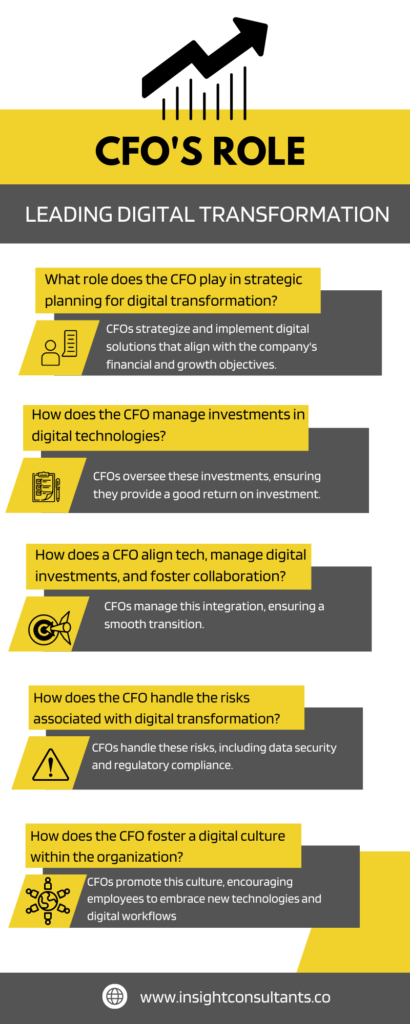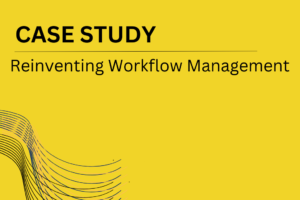AI in Finance: A CFO's Guide for SMBs
The role of a Chief Financial Officer (CFO) in small and medium-sized businesses (SMBs) extends far beyond the traditional responsibilities of financial management.
In the ever-changing world of business today, CFOs serve as strategic allies, playing a crucial part in determining the company’s path and future expansion.
In SMBs, the CFO is often the key decision-maker in strategic planning. They are responsible for financial forecasting, budgeting, and capital raising, ensuring the company has the necessary resources to achieve its objectives.
Based on a study conducted by PwC, 75% of Chief Financial Officers (CFOs) are engaged in controlling expenses, while 62% are contemplating postponing or scrapping planned expenditures due to the financial consequences of the COVID-19 outbreak.
Moreover, CFOs in SMBs are increasingly involved in operational decisions. They work closely with other executives to identify opportunities for operational efficiency and business expansion. A report by Gartner found that 74% of companies plan to permanently shift to more remote work post COVID-19, a strategic decision that CFOs are likely to be involved in.
In the digital age, CFOs are also leading the charge in technological adoption. They evaluate and implement new technologies, such as AI and machine learning, to streamline financial operations and provide data-driven insights for decision-making. A study by Accenture found that 77% of CFOs see identifying and targeting areas of new value across the business as one of their main responsibilities.
Unleashing the Potential of AI to Address CFO Challenges
In the face of challenges in the digital age, Artificial Intelligence (AI) emerges as a beacon of hope for CFOs. Imagine a world where routine tasks are automated, freeing up valuable time for CFOs to focus on strategic decision-making. This is no longer a dream, but a reality made possible by AI.
But the magic of AI doesn’t stop there. It extends to the realm of data analysis, where machine learning algorithms can sift through vast amounts of data, providing CFOs with real-time insights and predictive analytics.
When it comes to data security, AI stands as a formidable guardian. It can identify patterns and anomalies that may signal potential security breaches, enhancing the protection of sensitive financial information.
And in the ever-evolving landscape of regulatory compliance, AI proves to be a reliable ally. AI systems can be programmed to stay abreast of regulatory changes, ensuring that financial operations remain compliant.
In essence, AI is not just a tool but a powerful ally, ready to empower CFOs to navigate the complexities of the digital age with confidence and efficiency.

Successful Digital Transformations Led By CFOs
- Starbucks: Starbucks’ CFO, Patrick Grismer, played a crucial role in the company’s digital transformation. The company implemented a digital ordering system that not only improved customer experience but also increased efficiency in their operations. This digital initiative led to a significant increase in mobile orders, contributing to the company’s revenue growth.
- DBS Bank: The CFO of DBS Bank was instrumental in the bank’s digital transformation journey. The bank implemented AI and machine learning technologies to automate routine tasks and improve risk assessment. This digital transformation resulted in cost savings and improved efficiency.
- General Electric: The CFO of General Electric led a digital transformation that involved the implementation of a cloud-based financial planning and analysis system. This system improved the efficiency of financial operations and provided real-time financial data, enabling better decision-making
The Role Of AI In Digital Transformation
An Explanation Of What AI Is And How It Works
Artificial Intelligence (AI) is a branch of computer science that aims to create systems capable of performing tasks that would normally require human intelligence. These tasks include learning from experience, understanding natural language, recognizing patterns, and making decisions. AI works by processing large amounts of data and learning from it, using algorithms to identify patterns and make predictions. Machine learning, a subset of AI, allows systems to automatically learn and improve from experience without being explicitly programmed (source).
The various ways AI can aid in digital transformation
AI can significantly aid in digital transformation in several ways. It can automate routine tasks, freeing up time for strategic work. AI can provide predictive analytics, offering insights into future trends based on historical data. It can enhance customer experience through personalized service and recommendations. AI can also improve decision-making by providing real-time data and insights, enabling businesses to respond quickly to changes (source).
The benefits of AI for CFOs and the wider business
AI offers numerous benefits for CFOs and businesses. For CFOs, AI can automate financial processes, improve accuracy, and provide predictive insights for better financial planning. For businesses, AI can enhance customer experience, improve operational efficiency, and drive innovation. AI can also provide a competitive advantage, enabling businesses to leverage data for strategic decision-making (source).
AI Applications for CFOs
Artificial Intelligence (AI) has become a game-changer in the world of finance, offering CFOs a range of applications that can transform their operations, enhance decision-making, and drive business growth.
AI Applications Relevant to CFOs
AI offers a suite of applications that are particularly relevant to CFOs. These include predictive analytics, automation of routine tasks, and risk assessment.
1. Predictive Analytics: AI can analyze vast amounts of historical data to predict future trends and outcomes. This capability is invaluable for CFOs as it allows them to forecast financial performance, anticipate market changes, and make informed strategic decisions. For example, AI can use past sales data to predict future revenue, helping CFOs to plan and budget more accurately.
2. Automation of Routine Tasks: AI can automate routine, time-consuming tasks such as data entry, report generation, and reconciliation. This not only saves time but also reduces the risk of human error. For instance, KATA, a global equity management platform, implemented an AI solution that reduced the cycle times of its monthly close, freeing up valuable time for its finance team
3. Risk Assessment: AI can analyze a wide range of data to assess financial risks. For example, it can automatically detect issues like budget padding and human error at a granular level, flagging potential abnormalities for review. This allows CFOs to mitigate risks before they become serious problems.
Real-World Examples of AI Applications in Action
- Specialized Bicycle Components: This company experienced increased demand for its products during the pandemic. Thanks to its AI-enabled financial reporting and workforce planning system, it was able to streamline its processes and reallocate resources to support its rapidly growing business.
- State of Pennsylvania: The state overpaid a school district by half a million dollars due to a clerical error in spreadsheet data. This incident highlights the risk of human error in finance and the potential value of AI in preventing such costly mistakes.
- Planful Predict: This user-friendly software allows financial professionals to ramp up AI-enhanced financial planning and analysis in a matter of weeks. It’s an example of how AI can be accessible and beneficial to organizations of all sizes.
For a visual representation of how AI is transforming the finance sector, you can check out this YouTube video that provides an overview of AI in finance.
The Future of AI in Business Management
As the sun rises on a new day, the world of business management is waking up to the dawn of a new era – an era dominated by Artificial Intelligence (AI). The role of the CFO, once confined to number crunching and financial reporting, is being reshaped by this powerful technology. But what does the future hold?
AI and the CFOs of Tomorrow
Imagine a world where predictive analytics are so precise that CFOs can forecast financial performance with near-perfect accuracy. A world where automation has taken over not just mundane tasks, but complex processes, liberating CFOs to strategize and innovate. A world where AI algorithms can sniff out financial risks and anomalies with a level of detail that human eyes might miss. This is not a distant dream, but a near-future reality. As AI evolves, it promises to be an invaluable ally to CFOs, transforming their role and the world of business management.
The Challenges and Ethical Dilemmas of AI
However, every rose has its thorns. As AI systems take on more complex tasks, ensuring their accuracy and reliability becomes a formidable challenge. Ethical dilemmas loom large – will automation lead to job displacement? How do we ensure AI systems do not perpetuate bias or discrimination? These are questions that CFOs will need to grapple with as they navigate the AI maze.
Embracing AI, Embracing the Future
In the grand scheme of things, the journey of AI in business management is just beginning. Embracing AI is no longer a choice for CFOs; it’s a survival strategy in a rapidly evolving business landscape. Yes, there are challenges and ethical considerations, but the potential of AI to revolutionize decision-making, efficiency, and risk assessment is too great to ignore. As the sun sets on the old ways of doing things, CFOs who harness the power of AI will lead their organizations into a bright and promising future.
Insight Consultants: The CFO's Strategic Partner in the AI Journey
At Insight Consultants, our team partners with CFOs, guiding them through their digital transformation journey. We specialize in implementing AI technologies, including Robotic Process Automation (RPA) tools like UI Path. We assist in identifying processes ripe for automation and oversee the seamless integration of these tools into existing workflows. Beyond the technical, we help CFOs navigate the strategic implications of AI, manage associated risks, and foster a culture of digital innovation. Our team bridges the gap between the technical world of AI and the strategic world of finance, empowering CFOs to leverage AI as a strategic asset for business growth.
Ready to harness the power of AI in Finance for your business? Our team at Insight Consultants is here to guide you through every step of your digital transformation journey.





